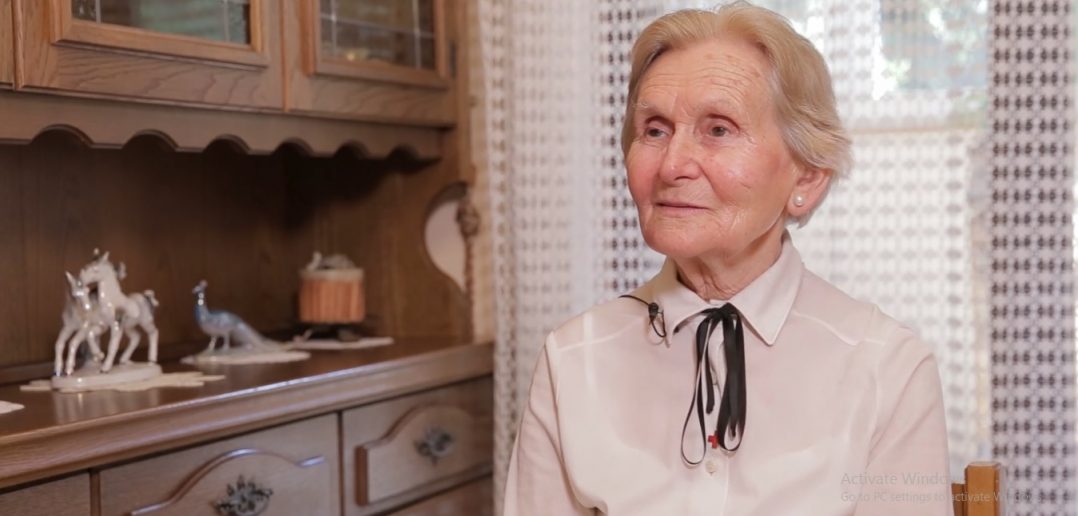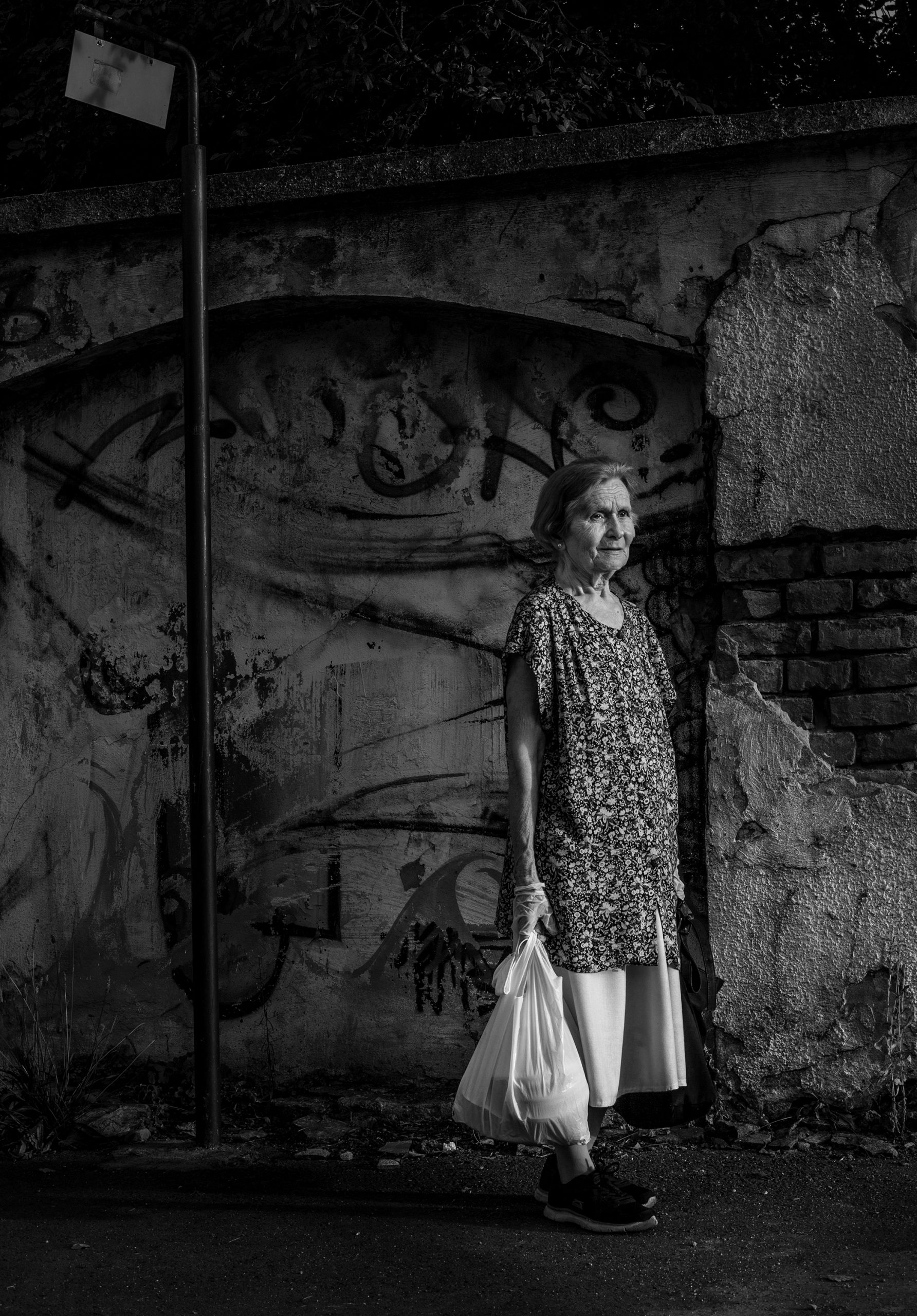
Danica Šmic was born in Belgrade in 1937 and survived the city’s bombing by hiding in the basement of the building where she lived with her parents. She is a retired physics and mathematics teacher with two sons; she is also a volunteering heroine, with more than 50 years of charity work helping people in trouble.
“Volunteering is one of my great pleasures. I love visiting people who are living alone, so that they don’t feel lonely or forgotten,” says Danica, who completed a course to become a volunteer Red Cross nurse in 1970, and hasn’t stopped actively participating in public life ever since – during both war and peace. “If we want this world to be a better, more just and humane place to live, the first step is to volunteer, to help one another, not only during pandemics or floods. It should be an everyday part of our lives.” Danica has stayed active during the COVID-19 pandemic: she writes and publishes and stays in touch with older people who need help, or who feel lonely, scared or rejected by the community.
“Older people are not a burden for society: society can benefit from them.”
During over half a century of activism and volunteering, Danica has been an advocate of older people’s rights: “Older people are not a burden for society: society can benefit from them, but intergenerational solidarity is especially important, and this has become evident during the coronavirus pandemic. Coronavirus didn’t stop us from helping each other, and we still managed to volunteer, but in a different way, and intergenerational solidarity helped us to contact each other and to learn from each other.”
This volunteer says that everyone must find their “inner volunteer” and help people in their neighbourhood as much as they can. Family and school are particularly important when it comes to building these habits among children and young people: “I think that there should be lessons about volunteering and solidarity and that people should engage in these activities from an early age. We are a nation that loves, knows how to and wants to help one another, but we also tend to forget things very quickly.”

“I am so happy because of the photo, I’m speechless. With all kinds of success and praise comes even greater joy, but even greater responsibility. This inspires you, and it is an incentive for you to continue working.”
Danica appeared in a photograph titled “At a bus stop – a volunteer on her way to visit a dependent elderly person” which won first prize in the Best EU Project Photo category in the Human in Focus contest organised by the EU Delegation to Serbia in partnership with National Geographic Serbia
The photograph was submitted by a project called “Increased Participation of Older Women in Public and Political Life”, implemented by Citizens Association Amity in partnership with FemPlatz organisation. She says “I am so happy because of the photo, I’m speechless. With all kinds of success and praise comes even greater joy, but even greater responsibility. This inspires you, and it is an incentive for you to continue working.
This project was funded through a larger-scale project, Priority Action for Gender Equality – implemented in partnership with UN Women and the EU Delegation to Serbia – which aims to strengthen administrative capacities for gender equality and achieve progress in implementation of EU and national gender equality commitments through gender mainstreaming.
Photo credits: EU Delegation Serbia
This is an adaptation of an article published by the Delegation of the European Union to Serbia. Read the original article.
“Volunteering is one of my great pleasures. I love visiting people who are living alone, so that they don’t feel lonely or forgotten,” says Danica, who completed a course to become a volunteer Red Cross nurse in 1970, and hasn’t stopped actively participating in public life ever since – during both war and peace. “If we want this world to be a better, more just and humane place to live, the first step is to volunteer, to help one another, not only during pandemics or floods. It should be an everyday part of our lives.” Danica has stayed active during the COVID-19 pandemic: she writes and publishes and stays in touch with older people who need help, or who feel lonely, scared or rejected by the community.
During over half a century of activism and volunteering, Danica has been an advocate of older people’s rights: “Older people are not a burden for society: society can benefit from them, but intergenerational solidarity is especially important, and this has become evident during the coronavirus pandemic. Coronavirus didn’t stop us from helping each other, and we still managed to volunteer, but in a different way, and intergenerational solidarity helped us to contact each other and to learn from each other.”
This volunteer says that everyone must find their “inner volunteer” and help people in their neighbourhood as much as they can. Family and school are particularly important when it comes to building these habits among children and young people: “I think that there should be lessons about volunteering and solidarity and that people should engage in these activities from an early age. We are a nation that loves, knows how to and wants to help one another, but we also tend to forget things very quickly.”

Danica appeared in a photograph titled “At a bus stop – a volunteer on her way to visit a dependent elderly person” which won first prize in the Best EU Project Photo category in the Human in Focus contest organised by the EU Delegation to Serbia in partnership with National Geographic Serbia
The photograph was submitted by a project called “Increased Participation of Older Women in Public and Political Life”, implemented by Citizens Association Amity in partnership with FemPlatz organisation. She says “I am so happy because of the photo, I’m speechless. With all kinds of success and praise comes even greater joy, but even greater responsibility. This inspires you, and it is an incentive for you to continue working.
This project was funded through a larger-scale project, Priority Action for Gender Equality – implemented in partnership with UN Women and the EU Delegation to Serbia – which aims to strengthen administrative capacities for gender equality and achieve progress in implementation of EU and national gender equality commitments through gender mainstreaming.
Photo credits: EU Delegation Serbia
This is an adaptation of an article published by the Delegation of the European Union to Serbia. Read the original article.
Please wait while your video is being uploaded...
Don't close this window!